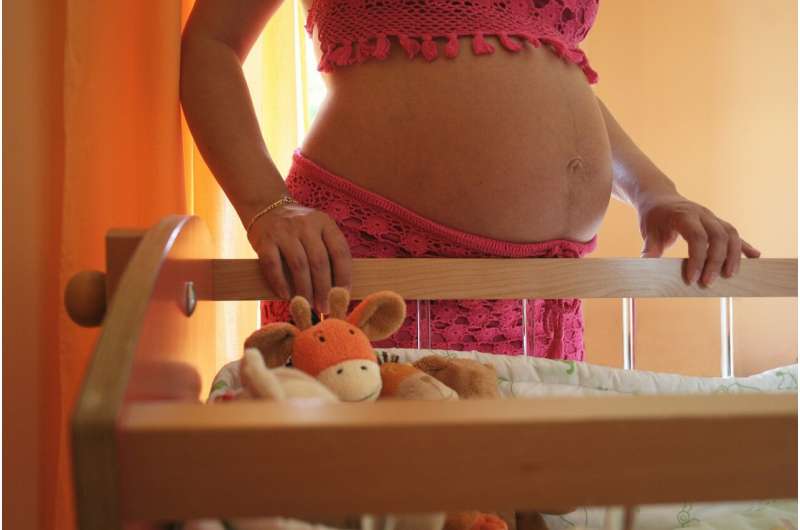This article has been reviewed according to Science X's editorial process and policies. Editors have highlighted the following attributes while ensuring the content's credibility:
fact-checked
peer-reviewed publication
proofread
Study shows cannabis use disorder during pregnancy increases by more than 20% after cannabis legalization in Canada

In October 2018, Canada enacted the Cannabis Act in Canada (CAC), which legalized the non-medical use of cannabis. A new study has found that the rate of cannabis-related disorders diagnosed among pregnant women in the Canadian province of Québec increased by more than 20% after the enactment of the CAC, while rates for all other drug- and alcohol-related disorders remained stable. The study is published today in the journal Addiction.
This study measured changes to the monthly rates of diagnosed cannabis-related disorders (CRDs) in the pregnant population in Québec. Since 2010, the monthly average number of CRDs has increased consistently, and before October 2018, the average number of CRD diagnoses per month was 14.5 per 100,000 pregnant women.
After October 2018, the average number of CRD diagnoses per month jumped to 23.5 per 100,000 pregnant women and has remained at that higher level. There were no significant changes for any other drug- and alcohol-related disorders in the same period.
The study looked at rates of CRD diagnoses in pregnant women aged 15 to 49 years in the Canadian province of Québec between January 2010 and July 2021. Data were sourced from the Québec Integrated Chronic Disease Surveillance System (QICDSS). Given that approximately 98% of the Québec population is eligible and admissible to public health insurance, the QICDSS encompasses data for nearly the entire population of the province.
Lead author Professor José Ignacio Nazif-Munoz, of the Université de Sherbrooke, says, "Cannabis use during pregnancy has been associated with elevated risk of preterm birth, neonatal intensive care unit admissions, low birth weight, and other negative outcomes, so the increase in CRD diagnoses after the Cannabis Act should trigger a robust public health response.
"Our study highlights the importance of universal screening for CRDs. Additionally, pregnant women with a history of cannabis disorder may benefit from repeated screening and ad-hoc counseling during pregnancy."
More information: Changes in prenatal cannabis-related diagnosed disorders after the Cannabis Act and the COVID-19 pandemic in Quebec, Canada, Addiction (2024). DOI: 10.1111/add.16564





















